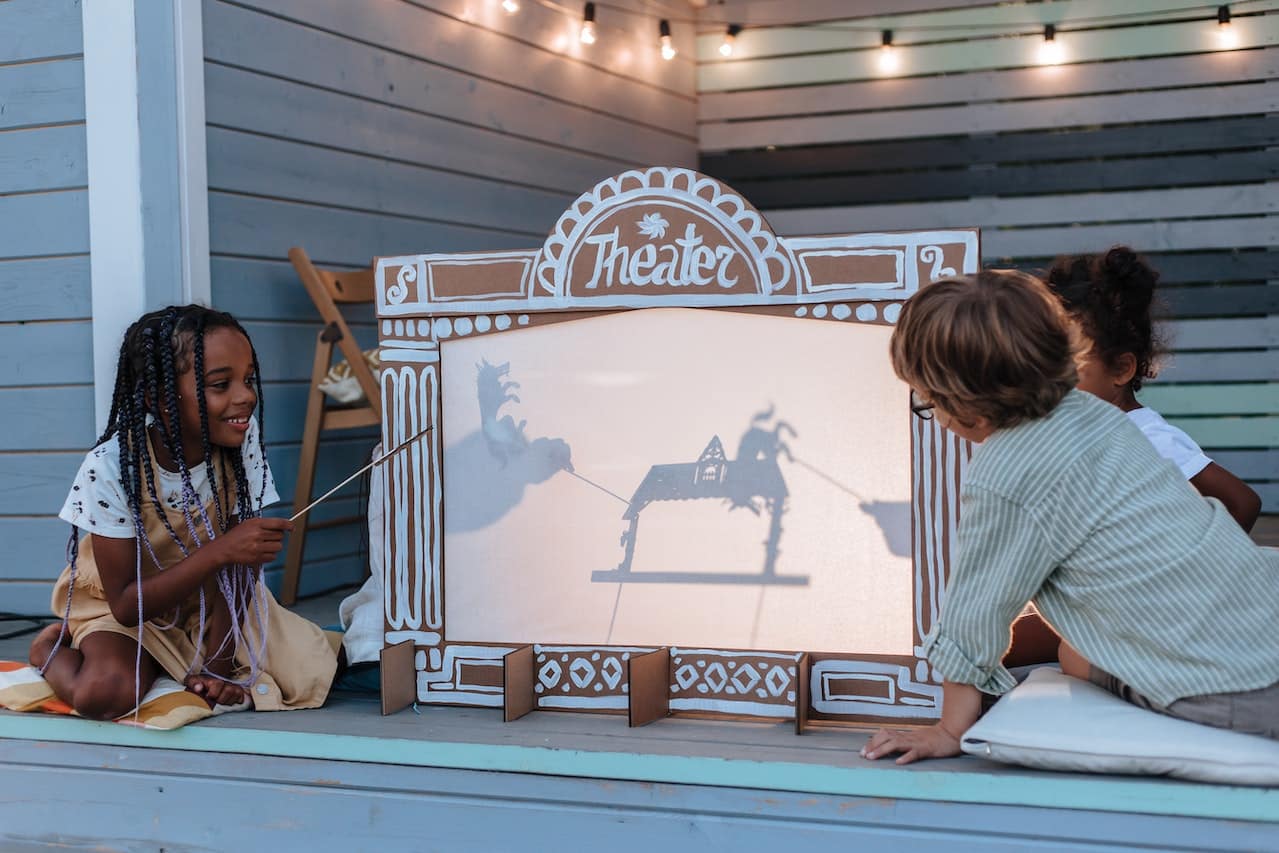It’s no secret that young children love to engage in imaginative and playful activities, whether that’s pretending to be a superhero or running a make-believe restaurant.
While these playful scenarios may seem like simple fun and games, they are actually a crucial part of a child’s development.
What is dramatic play in child development?
Dramatic play, also known as imaginative play, is a type of play in which children take on roles and act out various scenarios, often using props and costumes to enhance their play experience. In dramatic play, children create and explore their own imaginary worlds, where they can be whoever they want to be and do whatever they want to do.
Dramatic play can take many forms, from playing house to pretending to be a superhero, doctor, or teacher. Children often incorporate real-life situations into their play, such as going grocery shopping, cooking a meal, or taking care of a baby doll.
Benefits of dramatic play in early childhood
Develops social skills
As children engage in dramatic play, they inadvertently learn to communicate with others, negotiate roles and rules, and take turns. Similarly, they also learn to cooperate and collaborate with their peers, which is essential for building positive relationships.
Through role-playing, children can explore different social situations and experiment with different social behaviours, which can help them develop empathy, perspective-taking, and problem-solving skills.
Enhances creativity and imagination
Dramatic play benefits go beyond just developing social skills; it also enhances children’s creativity and imagination. When children engage in dramatic play, they are given the freedom to explore and experiment with different scenarios, characters, and emotions. By using their imagination to create their own worlds, children develop their creativity and learn to think outside the box.
Supports language development
Through dramatic play, children are encouraged to engage in conversations with their peers, where they can practise using language in a meaningful way. They learn new vocabulary as they take on different roles and engage in different scenarios, which helps to expand their language skills. As they interact with others, they also learn to listen and respond to others, which is a critical part of language development.
Encourages emotional regulation
As children engage in dramatic play, they are given the opportunity to explore and express different emotions in a safe and supportive environment. They can practise managing their emotions and learn to regulate their own behaviour, which is an important part of emotional development.
Here’s a dramatic play example that demonstrates this: when a child is playing the role of the doctor, they may encounter a patient who is scared or in pain. In this scenario, the child must use their emotional regulation skills to stay calm and reassuring while helping the patient feel better.
Promotes cognitive skills
One of the key cognitive skills that is developed through dramatic play is problem-solving. As children engage in imaginative play, they are presented with different scenarios that require them to think creatively and come up with solutions. Think of it this way: a child playing may need to figure out how to build a fort using limited materials or how to rescue a stranded toy from a pretend fire.
Through these activities, children learn to think critically and develop problem-solving skills that can be applied to a variety of real-world situations.
Develops fine motor skills
During dramatic play, children are often using their hands to manipulate small props or dress up in costumes. These activities require hand-eye coordination and fine motor skills, which are essential for a child’s development. When playing with toy kitchen sets or tools, for example, children are practising their grasp and finger strength.
They may also be manipulating small objects such as buttons, zippers, and snaps, which can improve their dexterity and hand-eye coordination.
How to encourage dramatic play at home
Encouraging dramatic play at home is a great way to support your child’s development and creativity.
Here are some of the best dramatic play ideas that you can try with your child:
- Provide open-ended toys: Open-ended toys such as blocks, dolls, and dress-up clothes can be used in a variety of ways, allowing children to use their imaginations and creativity to come up with different scenarios.
- Create a designated play space: Designate a specific area in your home for dramatic play, such as a playroom or corner of the living room. This will give your child a space where they feel comfortable and can fully engage in their imaginative play.
- Join in on the fun: Join in on your child’s imaginative play by playing along and taking on different roles!
- Provide props and materials: Providing props and materials such as hats, scarves, and boxes can inspire children to create their own props and set designs, encouraging their creativity and resourcefulness.
- Encourage outdoor play: Simply put, the benefits of outdoor play are endless. Outdoor play can provide countless opportunities for imaginative play, such as building forts, playing in the sand, or pretending to be explorers.
Dramatic play in childcare
Choosing a childcare centre is an important decision for parents and caregivers. At Aurrum Kids, we believe that children should be provided with opportunities to learn and grow in a nurturing and supportive environment. That’s why our childcare curriculum deliberately incorporates different types of play, including dramatic play, using the Reggio Emilia approach to play-based learning.
If you’d like to visit one of our centres and see for yourself how we incorporate dramatic play in childcare, get in touch with our friendly team to book a tour today.
